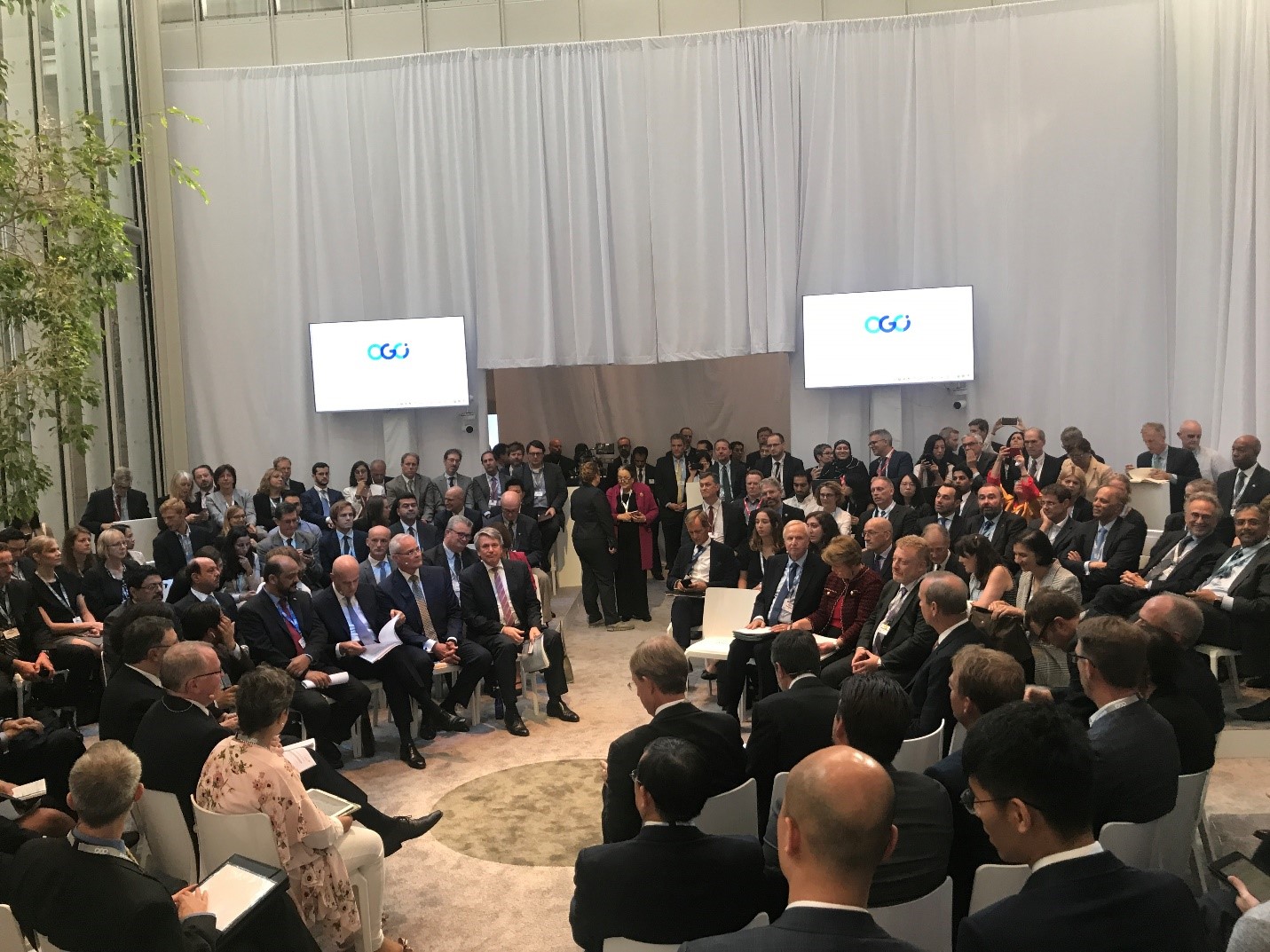
Climate Week is an important, annual global event that runs in coordination with the United Nations and New York City - showcasing climate action and discussions on what else can be done. Climate week draws participants from a multitude of sectors seeking to learn as well as add their perspectives. I was pleased to represent the International CCS Knowledge Centre at many activities. I will highlight two events hosted by the Oil & Gas Climate Initiative (OGCI).
The first was a highly interactive and facilitated Working Session on CCUS. The session, which fell under Chatham House Rules, was part of ongoing work of the CCUS Alliance of Champions project, jointly sponsored by the OGCI, Shell and BHP. This was not just another CCUS workshop. While CCUS workshops are valuable and necessary for sharing new technical and policy considerations, this session focused on CCUS narratives, and the technology’s role as one of many solutions in reaching climate goals. At this workshop we asked ourselves questions like, ‘How can CCUS play a role?' and 'How do we catalyze the technology to accelerate its deployment?'
Highlighted was the unanimous fact that action on climate change in necessary, but no one narrative on CCUS was unanimous as there continues to exist a range of opinions. Many who favour a CCUS pathway support it because of its role in meeting climate goals. Others do not want CCUS to act as a fig-leaf for large emitters, suggesting it buys companies time to emit, and thus not achieving climate goals. So from both ends of that spectrum, whether CCUS plays a mitigation role appears to relate to the urgency to put CCUS in place as a climate change mitigator.

The second event hosted by OGCI was a CEO Stakeholders Dialogue. This two-and-a-half-hour session of Q&As from moderators and audience stakeholders was very direct and forthcoming. Undeniably, the need to reduce emissions was echoed by the leaders – but the questions were not easy.
International leader on global climate change, Christiana Figueres, was a strong voice in the circle (Her article in The New York Times about the event can be found here) during the stakeholders dialogue. Recognizing that the oil and gas industry has the most agency to hinder or accelerate global efforts for leading and developing the necessary transitions to meet Paris goals, she boldly noted it will not be an easy road ahead.
For instance, some people continue to question the motives behind CCUS suggesting that it has a trust issue – if it continues to be seen as an avenue to maintain fossil-energy’s business as usual approach. Clearly, the oil and gas industry continues to face criticism of its efforts to combat global climate change, particularly as fossil fuel development grows in large economies worldwide, including the United States, China and Russia.
Industry leaders, however, are working to make energy cleaner and safer. Being committed to the Paris Agreement is definitely what unites them. While they are business competitors, they have banded together to support climate change mitigation and one of their main initiatives is to accelerate CCUS - aiming to double the amount of carbon dioxide that is currently stored globally by 2030.
During Climate Week, the OCGI group signed a declaration of collaboration with stakeholders to commit to their efforts to accelerate the reduction of greenhouse gas emissions and expand carbon storage.
With hubs in China, Norway, the UK, the Netherlands, and the US aiming to use industrial clustering and shared infrastructure to accelerate CCUS deployment at scale, the OGCI plans to work with others to put carbon-capture techniques into operation in focused areas, a clear consensus that expediting the technology is part of their immediate action.

-cropped-cropped.jpg)